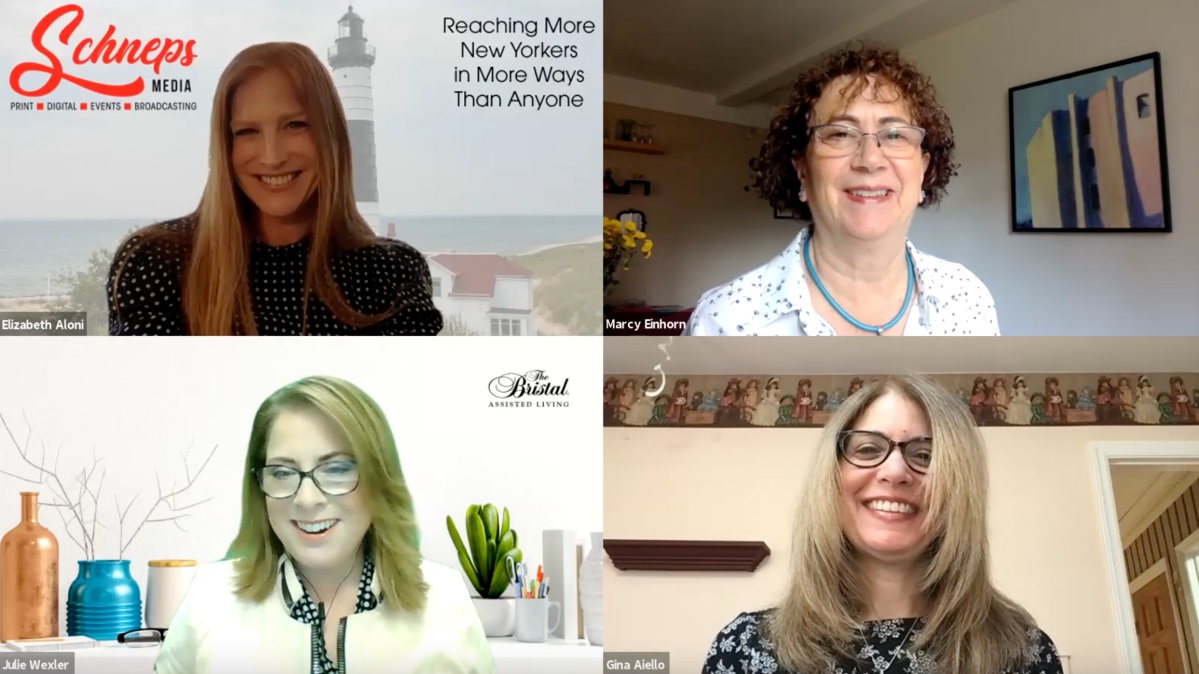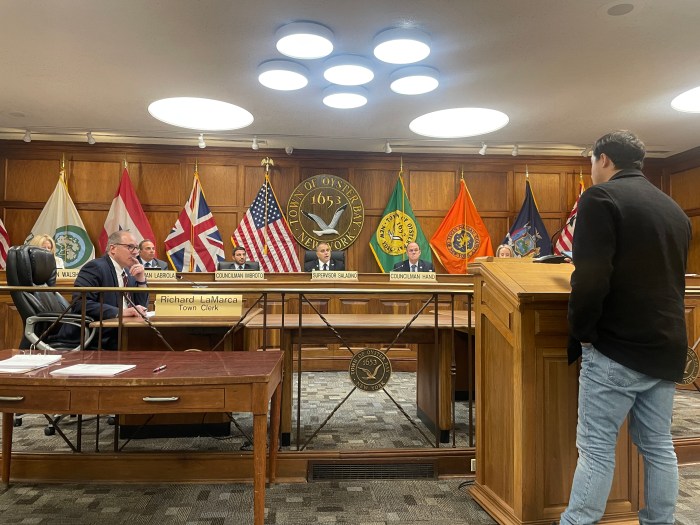Finding the best option to care for elderly loved ones and planning for their future can often be difficult and challenging to navigate.
Gina Aiello, president and geriatric consultant at Caring From The Heart; Julie Wexler, director of business development at The Bristal Assisted Living; and Marcy Einhorn, Esq., owner and lead mediator for Conflict Resolution for Elders, spoke about how to best plan for the future and handle the challenges that may come along the way in a webinar titled “Building a Roadmap for Senior Care Decision Making” hosted by Schneps Media, the parent company of the Long Island Press.
Aiello discussed the several options and considerations that need to be made when planning for senior care. As a geriatric social worker, Aiello assists families by referring them to adult daycare centers, recommending nursing homes, and starting the process of acquiring medical equipment in homes for seniors that do not wish to move. Aiello explained that in addition to where they’ll be living, it’s crucial to determine financial entitlement, and having an attorney can be helpful in getting documents such as a health care proxy, which would allow a designated family member to make healthcare decisions, and a living will in order.
Aiello recommends beginning to plan when the person is doing relatively well but may have started to show signs of aging including forgetfulness or difficulties completing tasks on their own. “Start the process because it takes time to get everything out of their name, or they may have to go to an elder care attorney and with the changes coming with Medicaid, you don’t want to plan in a crisis.”
Einhorn emphasized the importance of planning ahead to avoid conflicts that could prolong the process. After 20 years of working in traditional law and guardianship proceedings, Einhorn became a trained mediator and learned about the needs of elders and how to best help families in resolving conflicts whether they are financial or personal.
“As a mediator, I’m neutral and I don’t have any particular agenda or outcome in mind when I sit down with people. I’m there to help facilitate their communication with each other,” Einhorn said. “A successful mediation doesn’t necessarily result in a particular solution, but again, it’s a tool to begin to start communication with each other in a different way.”
For Wexler, the first and most important step in planning for senior care is the decision on whether they want to continue to live at home with home care, a senior community center, assisted living, or a nursing home. Wexler highlights that while a person may have an attachment to the home they’ve always lived in, it is not necessarily built to house a person in their late 80s or early 90s, and it’s important to explore other options in that scenario — especially when considering all of the changes made within the senior living industry.
“The 65 and over — particularly the 85 and over segment of the population — is the fastest-growing segment of our population. So the housing stock that we have available, particularly here on Long Island, wasn’t necessarily designed to accommodate them,” Wexler said. “We have baby boomers who are aging … and have very different ideas of what the golden years are and are really looking for a more luxury environment, a less clinical environment.”
Wexler noted that every family will face a different set of challenges and need to have different conversations when planning for their loved one. Whether they are dealing with more complex health issues like Alzheimer’s or dementia or require 24-hour assistance, the end goal is to provide them with the best quality of life where they feel safe, cared for, and protected.

































